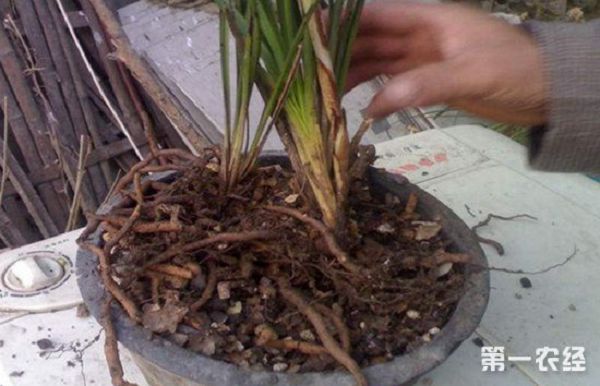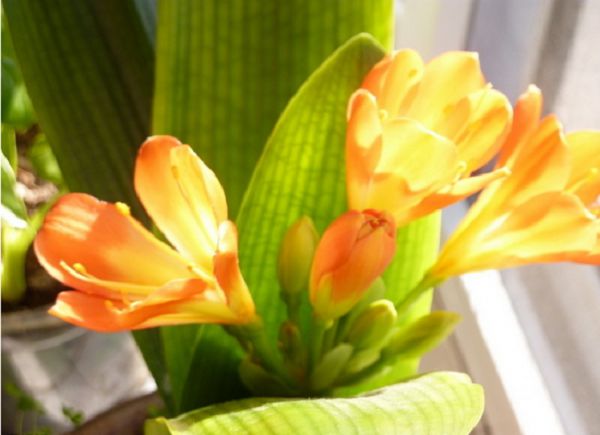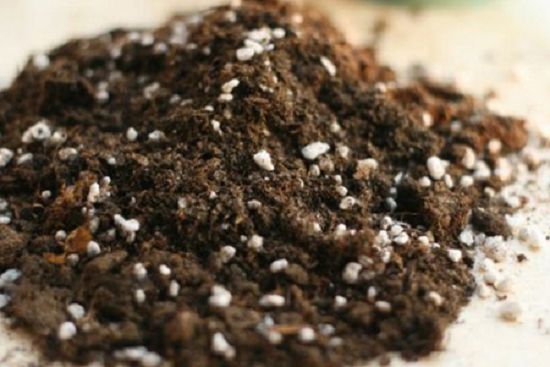How to judge and remedy the rotten root of orchid when planting the head of orchid grass and reed

Rotten root is a common problem in the maintenance of orchids. If you judge whether it is rotten from the leaves, it may be too late by the time it is found, because in general, the rotten roots of orchids do not begin to rot until the roots are finished, so, on weekdays, we should pay more attention to its root growth, and we can dig out the orchids from time to time to see if they are blackened. If you find it troublesome, plant it in a transparent plastic basin or other container where you can see the roots.
Orchids are planted in transparent pots to better observe the roots.
Orchid root rot is not terrible, afraid of Reed head rot, as long as it does not develop to Reed head rot, everything can be saved, and the most common reason for orchid root rot is improper watering, stagnant water or long-term drought may cause orchid roots can not breathe and rot.
Whether there is too much water or too little water, it is easy to block the breathing of orchid roots, thus causing decay. If it is found in time, as long as the rotten part is cleaned up, timely cutting off the rotten roots and controlling watering is the best way to save them, and it is also a big law to prevent orchids from rotting roots.
Most of the time, it has to be dug up to find out whether the root is rotten or not.
After shaving off the rotten parts of the orchid root, change the pot again, the original pot soil can no longer be used, it is best to disinfect the old flowerpot before changing the pot, and then replace the disinfected plant material, pay attention to the drainage of the new plant material, put it in a shaded and ventilated place for a period of time after changing the pot, and wait for its roots to come back to life and carry out normal maintenance in a sunny place.
The rotten root of the orchid is not terrible, as long as the Reed head is fine, it can be saved. The most fear is that it is infected with stem rot. When you find that the orchid leaves grow black spots from the bottom up, you must immediately dig up the roots and throw away the Reed head. Other infected orchid plants and leaves are also cut off and burned to keep the diseased plants isolated from other healthy orchid plants to prevent infection and annihilation. In order to change the basin, we should pay attention to the dense planting material from the lower part of the Reed head to near the root to prevent the Reed head from shaking or floating out of the soil.
When the leaves are rotten, the whole Reed head is destroyed, and it can't be saved.
You should know that the rotten roots of orchids must be problems with conservation, water and fertilizer damage to the temperature environment, and so on. As long as there is a violation of the growth characteristics of orchids, yellow leaves or rotten roots may occur. If the problem can not be found in time, then orchids are easy to die.
Careful maintenance of orchids
These are the rotting root problems that are most likely to occur in the process of orchid culture and their rescue measures. friends who plant orchids should pay attention to prevention. It is best not to wait for the roots of orchids to rot before solving this problem. Friends who plan to plant orchids, also learn, it may be useful in the future.
Related
- Is the orchid suitable for indoor use? Is it good for the body?
- How to prevent the empty root of orchids?
- What to do after the crab claw orchid is withered?
- Why are the leaves of orchids always yellow? Fertilizing and watering.
- Can the root of the gentleman orchid be saved if it is rotten?
- Diagnosis and treatment of cotton-blowing beetle insects in Cymbidium
- There is a way for a gentleman's orchid to rot.
- What is the most suitable temperature and humidity for the orchid?
- How to raise a gentleman's orchid? Cultivation techniques of Cymbidium
- How to prepare the nutritive soil for the cultivation of Cymbidium



